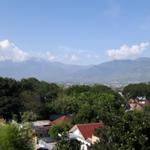Transnational Environmental Crime and Corruption
Transnational environmental crime is enormous in scale, typically well-organized, and often entwined with corruption in the state and private sector. It results in devastating and sometimes irreversible impacts. Sizable proportions of the world's natural resources are produced in, and traded across, countries with low levels of accountability, transparency, rule of law, and high levels of fragility. Transnational organized environmental crime is often dependent on petty corruption and tends to flourish where grand corruption and state capture occur.
Tackling transnational organized environmental crime depends on efforts to investigate, expose, and prosecute corruption in source countries, in trade and finance hubs, and on boosting efforts to disrupt transnational illicit commodity flows and money-laundering. This task is easier where durable democratic institutions exist, though in many particularly exposed jurisdictions such institutions are weak or non-existent. Three real-world cases help explore the challenges of transnational environmental crime, organized crime and corruption.
David Aled Williams

